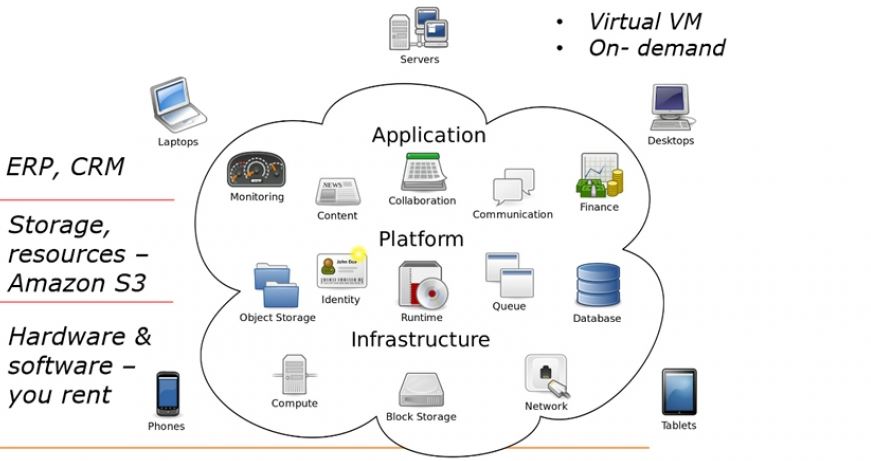Cloud computing is gaining momentum as it enables small and large companies alike to gain unprecedented competitiveness. You don’t need a lot of capital to invest in sophisticated ICT applications, software or infrastructure. As long as you have fast internet connection, and the brains to do it, you identify a credible provider and run all your computing needs on the cloud.
A case in point
In the past, to acquire a robust enterprise resource planning (ERP) application like SAP; or ACL, you needed to part with over US $100,000+ in one-off capital expenditure to acquire the application. Then invest in training your staff, and all the attendant costs of ensuring system security and optimal use. You had to continuously keep waiting for updates, which a specific staff in your term would download and update manually. All these came at a high cost to the business considering that many companies use just 60% of the capacity of the software/ apps they acquired due to learning curve, staff turnover and low business maturity.
Enter the era of cloud computing.
Instead of spending a lot of money upfront to procure a system, you have an option of software as a service (SaaS); where you register and pay small monthly fee for using the service. The advantage with this is that the service is so flexible that you pay for only what you need. No unnecessary payments for capacity you don’t yet need. Plus the cloud provider takes care of all other services like ensuring timely updates, security and other improvements.
In the attached presentation, you will understand basic cloud computing basics from practical insights.
Around 2012, I started hearing a lot about cloud computing. I got interested, and researched a lot about the subject. I read a lot of stuff on the Internet about cloud computing and found it so game changer – spending less to access the best ICT hardware and software there is – was the best. The challenge though remained: where are these cloud servers located?
And so, when I got the opportunity to travel to Singapore in early 2014, I was excited. “Since this is a developed country, and many global companies are said to be providing cloud hosting services for top companies globally, I knew finally my opportunity to see big servers in the clouds has arrived.”
I connected to Singapore via Nairobi and Dubai from Entebbe. I ensured I got a window seat. While ascending at Entebbe, I ensure I see outside in case there are some cloud servers there. I have been made to understand MTN Uganda has cloud hosting services. I tried to check in vain.
At Jomo Kinyatta International Airport, I tried to peep outside, nothing. No cloud servers. I was still confident since these countries are less developed. May be their servers are so small to see.
These are just developing countries. While travelling, the pilot announced we shall be entering Dubai airspace. I was excited. I asked, a passenger nearby: “I had Dubai is highly developed, with many international companies setting up cloud servers’ here.” He said, sure, that is true; in a real Indian accent while shaking the head, left to right. So, I asked, where exactly in the clouds can I see the servers? He said, I have never thought of it that way. However, if you are successful to see them, please let me know. As we approached Singapore airspace, I was looking forward to the same in vain. Until, someone informed me that cloud hosting has nothing to do with servers located in the clouds. It basically means accessing your files only over the Internet; regardless of the geographical space.
Because everything from contracting to use, are done via on-line, you don’t get to meet the other parties. And that is why they call it cloud computing. Doing things over the Internet without knowing the exact location where the servers are located contrary to the old arrangement of local hosting. If you have a cloud email account with Gmail, Yahoo or Outlook, you are already using the cloud. Unlike your files saved on your local computer C drive, you don’t know the physical location of the servers where your emails are kept.
The presentation below will give you deep insights to master cloud computing. If you need an audio version of the presentation, email premium@summitcl.com and listen to the talk in the comfort of your car. You will receive the download instantly; after paying US $10. Thanks.






